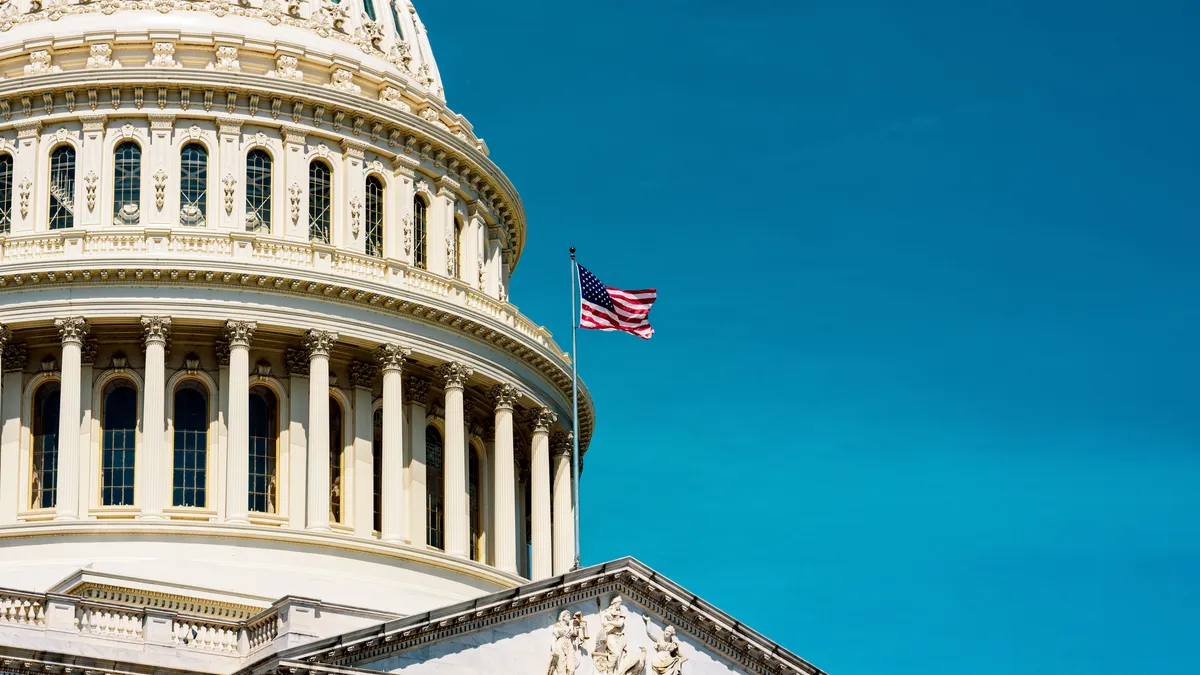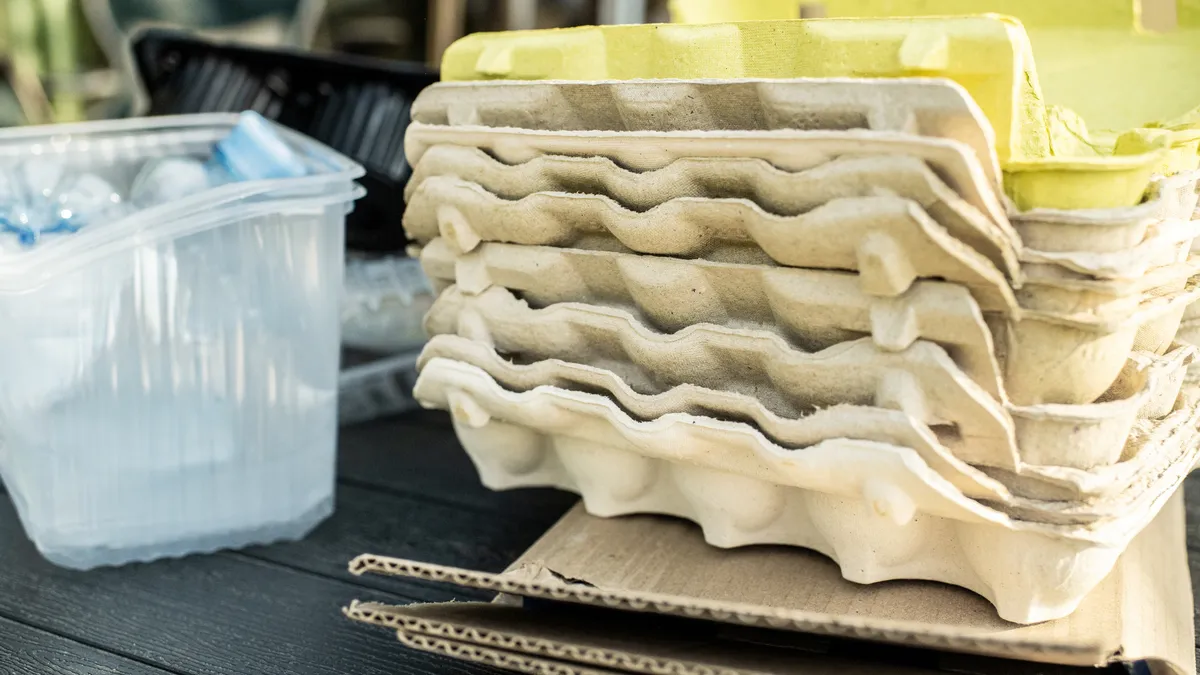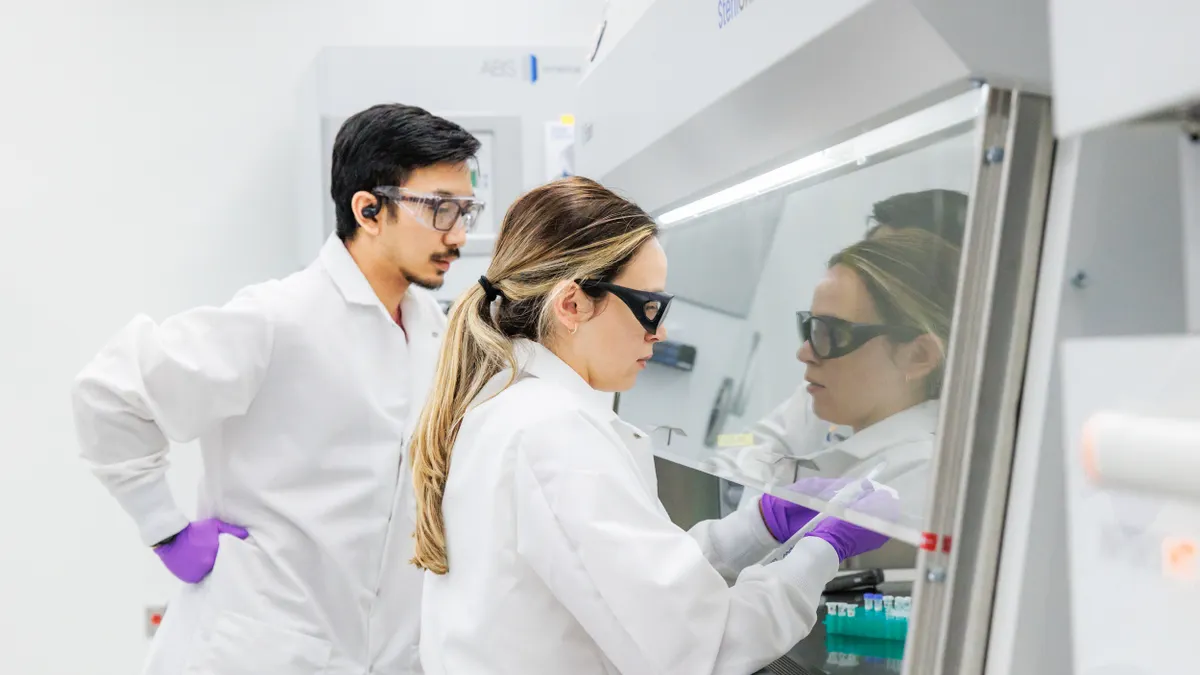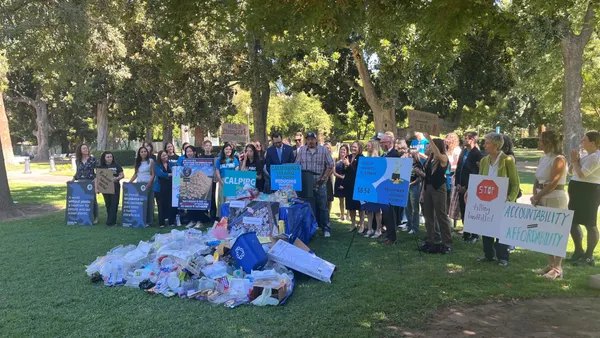UPDATE: March 13, 2024: The Senate passed the bipartisan Recycling and Composting Accountability Act and Recycling Infrastructure and Accessibility Act by unanimous consent on Tuesday, after previously passing in 2022. Senators added amendments to note that funding would start in FY25 and run through FY29, given that time has lapsed since they were introduced, but no other changes were made.
April 28, 2023: The Senate Committee on Environment and Public Works this week passed a pair of bills that could put federal dollars into bolstering recycling infrastructure and potentially spur development of a national composting strategy. Ameripen, the Can Manufacturers Institute, the American Forest & Paper Association and Tetra Pak were among the packaging stakeholders that cheered the bills’ advancement.
The reintroduced Recycling and Composting Accountability Act, which failed to pass the House last year, would compel the U.S. EPA to determine the feasibility of implementing a national strategy for compostable materials as a means to reduce recycling contamination rates.
As part of that process, EPA would study the “practices of manufacturers and companies that are moving to using compostable packaging and food service ware for the purpose of making the composting process the end-of-life use of those products.” It also calls for an inventory of MRFs, including descriptions of which packaging and food service ware can be processed.
The reintroduced Recycling Infrastructure and Accessibility Act, which also failed to pass the House last year, would require EPA to establish a pilot grant program to support state and local governments and other entities in improving access to recycling collection. Grants would range from $500,000 to $15 million, and priority would be given to communities at least 75 miles from the nearest MRF.
Together, Ameripen said the measures “will enable the U.S. to reach ambitious and necessary goals of reusing more packaging materials and achieving a more circular economy.” The bills “put some teeth” behind discussions about improving sustainability, building access to packaging recovery and recycling and protecting the environment, Ameripen wrote in its statement.
The legislation could enable EPA to better inform recycling policy by using data and to “create the infrastructure and markets to increase the use of emerging packaging materials, recycled content and packaging recovery and recycling technologies, including composting,” according to the statement. Ameripen said it sees a national residential composting strategy as “critical” for compostable packaging’s success in the U.S.
Further, Ameripen highlighted aspects of the legislation addressing end markets, including language compelling EPA to share an update on end market sales of recyclable and compostable materials processed after being collected from households.
CMI also applauded the data aspects of the legislation. “These bills will help the metal can industry with data to understand where the gaps are in metal can collection and recycling, so we can assess where investments should be made in better collection and sorting,” said Mike Smaha, vice president of government relations, in a statement. “However, more action is needed if the United States is to achieve a higher national recycling rate, including a national recycling refund for beverage containers.”











